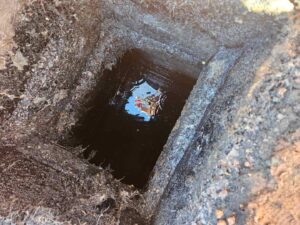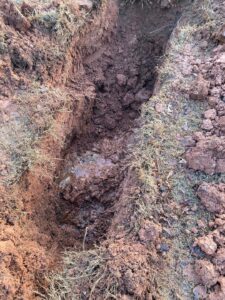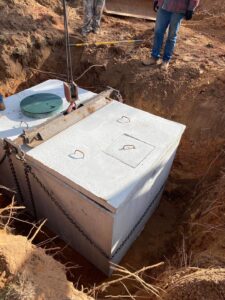Dealing with septic tank issues can be a messy and costly ordeal. From foul odors to backups, problems with septic tanks can disrupt daily life and pose health risks. Understanding common septic tank challenges is crucial for maintaining a functional system and preventing major headaches down the line.
Understanding How a Septic System Works
Function of a Septic System
Septic tanks, commonly found in rural areas, are crucial for treating wastewater. They work by separating solid waste from liquid waste. The liquid part then gets absorbed into the soil.
A septic system consists of essential components like a septic tank, distribution box, and drain field. The septic tank holds the wastewater long enough to allow solids to settle at the bottom and oil and grease to float on top. The clarified liquid then flows into the drain field where it is further treated by beneficial bacteria in the soil.
Importance of Proper Maintenance
Regular maintenance is vital for septic systems to function efficiently. Neglecting maintenance can lead to various problems such as clogging or overflowing, which can be costly to repair. Simple practices like pumping out the tank every few years can prevent major issues.
Pros:
Effective treatment of household wastewater.
Environmentally friendly when properly maintained.
Cons:
Requires regular maintenance.
Improper use may lead to system failure.

Signs of Septic System Failure
Slow Draining Fixtures
If you notice slow draining sinks, toilets, or showers in your home, it could be a sign of septic tank issues. When wastewater struggles to drain properly, it might indicate that the septic system is not functioning as it should. This slow drainage can lead to backups and unpleasant odors in your house.
Slow draining fixtures
Indication of septic tank problems
Potential for backups and foul odors
Foul Odors
Foul smells emanating from drains or even from the yard are a clear indication of septic tank troubles. These odors are caused by the buildup of gases within the septic system due to improper functioning. If these smells persist even after cleaning your drains, it’s essential to have your septic system inspected promptly.
Persistent foul odors
Signaling septic tank issues
Need for immediate inspection
Drain Field Issues
The presence of lush green patches or standing water near the drain field can signal potential septic system failure. These signs suggest that wastewater is not being effectively treated and absorbed into the soil by the drain field. Addressing these issues promptly is crucial to prevent further damage to your septic system.
Lush green patches or standing water near drain field
Inadequate treatment and absorption
Importance of prompt action
Common Septic Tank Problems and Solutions
Clogged Pipes and Blocked Filters
Septic tank problems often stem from clogged pipes or blocked filters. These issues can lead to backups and slow drainage, indicating the need for professional cleaning. Regular maintenance can prevent such problems by ensuring proper flow within the system.
Professional cleaning resolves clogs
Regular maintenance prevents future issues
Tree Root Infiltration
Tree roots infiltrating septic systems are a common cause of damage. When roots penetrate the tank or pipes, they can lead to blockages and leaks, requiring root removal and repairs. To address this issue effectively, it’s crucial to identify which trees pose a threat to the septic system.
Root removal is necessary for repair
Identifying problematic trees is key
Full Septic Tank
A full septic tank poses several problems, including backups and potential system failure. Pumping the tank regularly is essential to prevent these issues and ensure that the septic system functions correctly. Neglecting pumping can result in costly repairs down the line.
Regular pumping prevents backups
Neglecting pumping leads to expensive repairs

Addressing Malfunctioning Septic Systems
Regular Maintenance
Regular maintenance is key to preventing and addressing minor septic tank issues. Inspections help catch problems early, allowing for timely solutions. Pumping out the tank regularly ensures it functions efficiently by preventing clogs and backups.
To prevent major malfunctions, homeowners should schedule routine inspections every three to five years. During an inspection, a professional can identify any potential issues before they escalate into costly repairs or replacements.
Pros:
Prevents major malfunctions
Extends the lifespan of the septic system
Cons:
Requires periodic investment
Inconvenience during maintenance visits
Repairing Damaged Components
Repairing damaged components such as broken pipes or faulty pumps is crucial for restoring proper functionality of a septic system. Ignoring these issues can lead to sewage backups, foul odors, and environmental contamination.
When faced with damaged components in a septic system, immediate action is necessary to prevent further damage and health hazards. Hiring a professional plumber experienced in septic systems ensures that repairs are done correctly and promptly.
Contact a licensed plumber specializing in septic systems.
Have the plumber assess the damage thoroughly.
Follow through with recommended repairs promptly to avoid worsening conditions.
Preventing Septic Tank Issues
Flushing Habits
Flushing non-biodegradable items down the toilet can lead to clogs and septic system damage. Items like wipes, feminine hygiene products, and paper towels should not be flushed.
Pros: Helps prevent costly repairs and maintains proper septic tank function.
Cons: Improper flushing can result in backups, foul odors, and environmental contamination.
Water Conservation
Limiting water usage through fixing leaks and practicing conservation helps reduce strain on the septic system. Repair leaky faucets promptly to prevent excess water from entering the tank.
Check for leaks regularly.
Install low-flow fixtures to conserve water effectively.
Properly disposing of household chemicals and medications is crucial in preventing contamination of the septic tank. Avoid pouring oils, paints, or harsh cleaners down drains as they can harm beneficial bacteria in the tank.
Household chemicals should be taken to designated disposal sites.
Unused medications can often be returned to pharmacies for proper disposal.

Dealing with Sewage Backup and Odors
Addressing Sewage Backups
Sewage backups can lead to significant issues in a home. To prevent this, it’s crucial to manage water usage carefully. Avoid overloading the system by staggering laundry loads throughout the week instead of doing them all at once. Seek professional assistance promptly if you notice any signs of blockages in your drains or toilets.
Pros:
Prevents damage to the house.
Minimizes health risks associated with human waste exposure.
Cons:
May incur additional costs for professional help.
Requires vigilance and regular maintenance.
Minimizing Foul Odors
Foul odors emanating from septic tanks can be bothersome and indicate underlying issues. Proper ventilation is key to reducing these odors inside the house. Using septic-safe cleaning products helps maintain a healthy balance within the tank, preventing unpleasant smells from permeating your home environment.
Regularly ventilate your home.
Use cleaning products specifically designed for septic systems.
Consider installing an odor filter on your plumbing vents.
Rectifying Standing Water and Leach Field Problems
Preventing Oversaturation
Excess water near the drain field can lead to standing water issues. To prevent this, divert water sources like rain gutters away from the area to avoid oversaturation.
Adding organic matter or aerating the soil in saturated leach fields can enhance drainage. By improving soil structure, you reduce the risk of standing water problems.
Repairing Distribution Pipes
Damaged or clogged distribution pipes within the drain field must be fixed promptly. These repairs are crucial for resolving drainage issues effectively.
Divert excess water away from drain field
Add organic matter or aerate soil for better drainage
Repair damaged/clogged distribution pipes in drain field
Seeking Help for Septic System Problems
Licensed Professionals
Hiring a septic system professional is crucial for accurate diagnosis and solutions to problematic septic tanks. These experts have the knowledge and experience to address various issues, including clogs, leaks, or drainage problems. By seeking help from licensed professionals, homeowners can ensure that their septic systems are properly maintained and repaired.
Pros:
Expertise in diagnosing and solving septic tank problems
Compliance with regulations and standards
Cons:
Cost may be higher compared to DIY solutions
Dependence on external help for maintenance
Local Health Departments
Local health departments or environmental agencies play a vital role in providing guidance on septic system repairs. They offer valuable resources regarding regulations, permits, and best practices for maintaining a healthy septic system. Homeowners can reach out to these authorities for assistance in understanding the necessary steps to resolve problematic septic tank issues.
Contact your local health department or environmental agency.
Inquire about regulations and guidelines for septic system repairs.
Seek recommendations for licensed professionals if needed.

Financial Assistance for Failing Septic Systems
Government Programs
Some local governments offer financial assistance programs or grants to homeowners with failing septic systems. These programs can help cover the costs of repairs or replacements, easing the financial burden on homeowners facing septic tank issues.
Non-profit organizations also play a role in assisting homeowners dealing with failing septic systems. They may provide low-interest loans or subsidies specifically designed to support septic system repairs and replacements. By accessing these resources, homeowners can address their septic tank problems without breaking the bank.
Homeowners Insurance Coverage
In some cases, homeowners insurance policies might cover certain damages caused by septic system failures. However, coverage varies depending on the policy and specific circumstances. It’s essential for homeowners to review their insurance policies carefully to understand what aspects of septic system issues are covered.
Septic Risers Order Online
Do you need septic risers for your septic system. Septic Risers really help when you need to pump out your septic. They are a great addition and can save you time and money in the long run. Visit this link to order them directly to your home today.
Closing Thoughts
You’ve now got the lowdown on septic tank headaches. From understanding how these systems operate to tackling issues like sewage backups and foul odors, you’re armed with the knowledge to combat septic system problems head-on. Remember, prevention is key! Regular maintenance and keeping an eye out for warning signs can save you from major hassles down the line. And when things go awry, don’t hesitate to seek professional help to nip problems in the bud. Your septic system may be out of sight, but it should never be out of mind!
So, roll up your sleeves, keep those tanks in tip-top shape, and bid farewell to septic snafus! Remember, a little care today can save you a ton of trouble tomorrow. Stay proactive, stay informed, and keep those septic systems running smoothly!
Frequently Asked Questions
What are some common signs of septic system failure?
If you notice slow drains, gurgling sounds in pipes, sewage odors, or lush green patches in the yard near the tank area, these could indicate a failing septic system. It’s crucial to address these signs promptly to prevent further damage.
How can I prevent septic tank issues?
Regular maintenance such as pumping every 3-5 years, avoiding flushing non-biodegradable items, and being mindful of water usage can help prevent septic tank problems. Proper care and attention to your system can go a long way in ensuring its longevity.
How do I deal with sewage backup and odors from my septic system?
In case of sewage backup or foul odors inside or outside your home, it’s important to stop using water immediately and call a professional for inspection. Avoid DIY fixes as they may worsen the situation. Prompt action is key to preventing health hazards.
What should I do if there is standing water around my leach field?
Standing water around the leach field could indicate a serious issue like clogging or saturation. Refrain from digging or tampering with the area yourself. Contact a qualified technician who can assess the situation accurately and recommend appropriate solutions tailored to your specific problem.
Is financial assistance available for failing septic systems?
Depending on your location and circumstances, there may be grants, loans, or programs offering financial aid for repairing or replacing failing septic systems. Check with local authorities, environmental agencies, or community organizations that support homeowners dealing with such challenges.
You should check out these articles as well:
